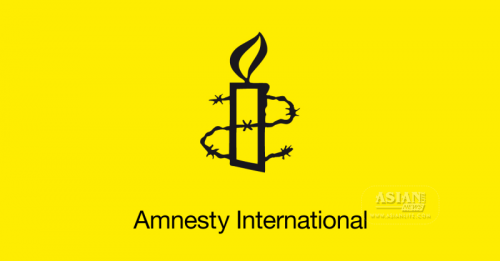 The five permanent of the U.N. Security Council have been urged by Amnesty International to give up their power of veto in cases where atrocities are being committed.
The five permanent of the U.N. Security Council have been urged by Amnesty International to give up their power of veto in cases where atrocities are being committed.
In its annual report, the rights group said 2014 had been a catastrophic year for victims of conflict and violence.
The report stated that richer countries took an “abhorrent” stance in 2014 for not sheltering more refugees and urged world leaders to swiftly confront armed conflicts across the globe.
“Governments pay lip service to the importance of protecting civilians. And yet the world’s politicians have miserably failed to protect those in greatest need. Amnesty International believes that this can and must finally change,” Salil Shetty, Secretary General of the rights group said in a statement.
Shetty urged the council’s five permanent members – the UK, China, France, Russia and the U.S. – to use their veto to “promote their political self-interest or geopolitical interest above the interest of protecting civilians.”
Since 2011, Russia and China have cast four vetoes to block international action in Syria, where more than 210,000 have been killed since the conflict began, according to the Syrian Observatory for Human Rights.
The Security Council has failed to deal with conflicts in Syria, Iraq, Gaza, Israel and Ukraine, even when civilians had been subjected to “horrific crimes,” Amnesty said.
Amnesty also urged all governments to ratify and adhere to a global arms trade treaty, which came into force in December and aims to regulate the $85 billion industry and keep weapons out of the hands of human rights abusers and criminals.
A huge number of arms were delivered to Iraq, Israel, Russia, South Sudan and Syria in 2014, despite the likelihood of these weapons being used against civilians, it said.
The report also highlighted how several governments in 2014, including Kenya and Pakistan, had reacted to security threats with “draconian and repressive” tactics.
Kenya passed anti-terrorism measures last year that opposition groups and activists said would threaten liberties and free speech, while Pakistan lifted a 2008 ban on the death penalty.
Shetty added: “Government leaders justify human rights violations by talking of the need to keep the world ‘safe.’
“But knee-jerk reactions do not work. Instead they create an environment of repression in which extremism can thrive.”